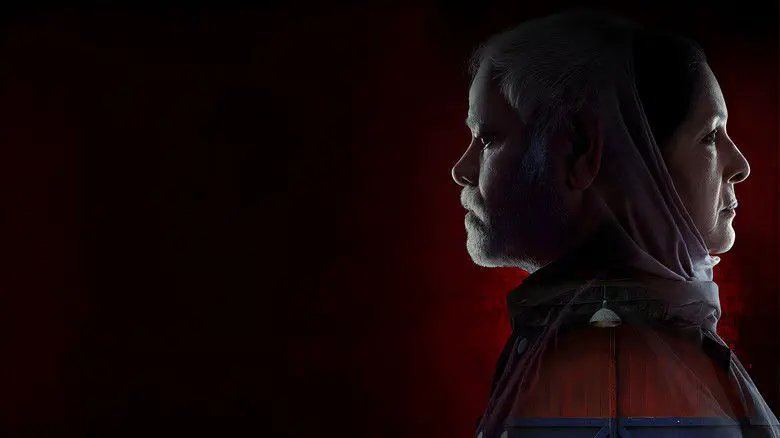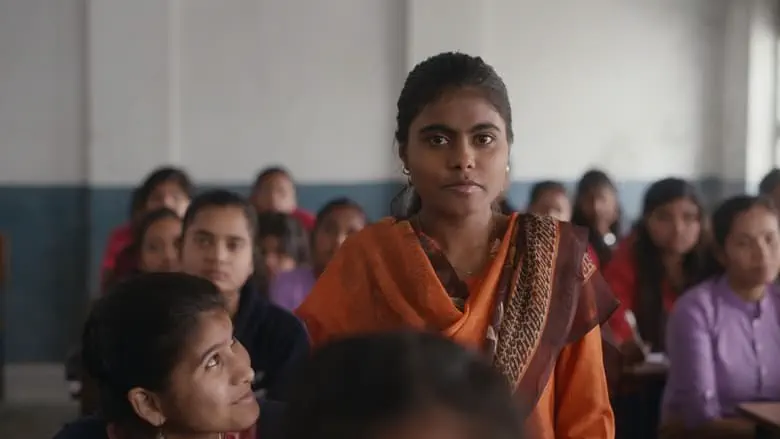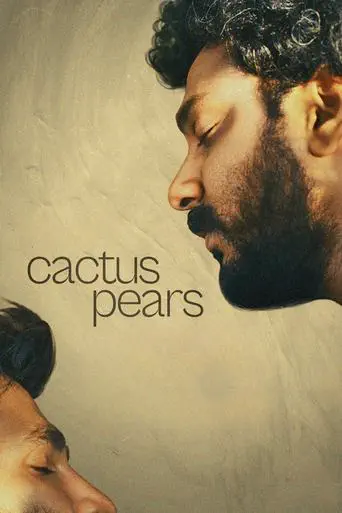
Sabar Bonda (Cactus Pears)
Drama Romance Marathi
A thirty-year-old city-dweller compelled to spend ten-day mourning of his father in the rugged countryside of Western India tenderly bonds with a local farmer struggling to stay unmarried. As the mourning ends, forcing his return, he must decide the fate of his relationship born under duress.
| Cast: | Bhushaan Manoj, Suraaj Suman, Jayshri Jagtap, Dhananjay Jambar, Sandhya Pawase, Hemant Kadam |
|---|---|
| Director: | Rohan Kanawade |
| Writer: | Rohan Kanawade |
| Editor: | Anadi Athaley |
| Camera: | Vikas Urs |

Guild Reviews
A lyrical, languid journey of self-discovery and belonging that offers hope even in difficult circumstances

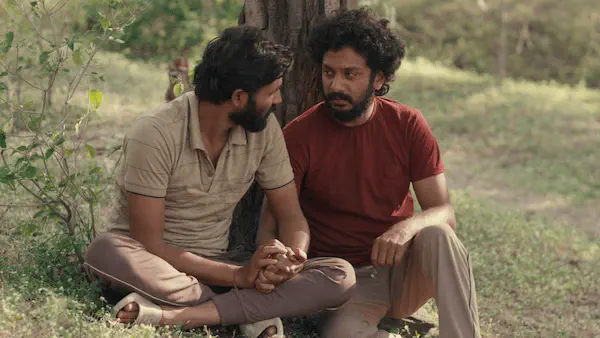
An Astounding, Assured Debut

(Written for OTT Play)
Fairly early in Rohan Parashuram Kanawade’s Sabar Bonda (Cactus Pears), a character is instructed on how to grieve. Don’t cut your hair, don’t ask for a second helping and walk bare feet for the next couple of days. Anand (Bhushaan Manoj) has just lost his father but his extended relatives have no time for feelings. The mourning ought to be communal and hence regimented, an ask which falls in line with their larger curiosity in Anand’s life: at 30 years of age, why is he still unmarried? The demand to conform and the desire to live form the crux of Kanawade’s Sabar Bonda, a strikingly assured debut and the first Marathi film to be premiered at the Sundance Film Festival. After Anand’s father passes away, his mother persuades him to go to his ancestral village for the stipulated 10-day mourning period. He resists suggesting that he will go to pick her up instead. A quiet telling-off changes his mind as they both journey back to a place which has more memories than people.

Rohan Kanawade Both Deploys And Subverts The Weepy Gay Man Genre

A weepy gay man is a genre unto himself, moping throughout, a smile as though kryptonite, whose relationship to life is mediated by melancholy and self pity, a melancholy and self pity that gushes from the wellspring of his wounded sexuality. Valid or not, this misery is templated. Writer-director Rohan Parashuram Kanawade’s Sabar Bonda (Cactus Pears), the first-ever Marathi-language feature to premiere at the Sundance Film Festival 2025 as part of their World Cinema Dramatic Competition, both deploys and destabilises this genre. Here, the melancholy of Anand (Bhushaan Manoj), the queer protagonist, is actually grief — his father passed away, and it is under the shade of this grief that the story of his sexuality stretches itself in a quiet, twilled yawn.
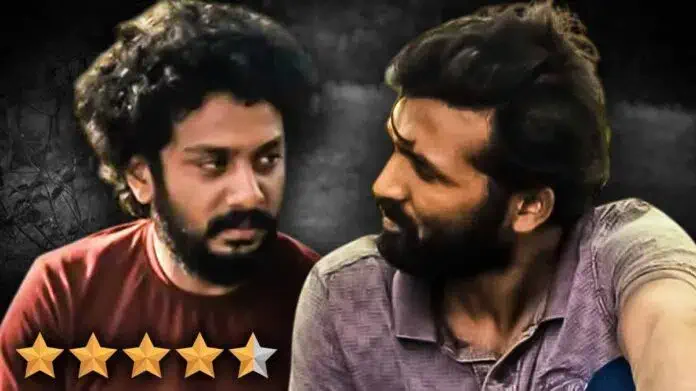
Tender moments and love written all Rohan Kanawade's debut

To enjoy the sweet taste of cactus pears, you must first carefully remove the sharp spines from the skin of the fruit. Rohan Kanawade’s debut feature, Sabar Bonda (Cactus Pears) is meant to be savoured exactly like that. For starters, it’s a love story of two people who bond during a difficult time. That it showcases a tender relationship between two men is imperative to mention, but the film doesn’t make any claims about championing a queer cause. Sabar Bonda is a beautiful and simple film that explores how childhood friends Anand (Bhushaan Manoj) and Balya (Suraj Suman) reunite in the most difficult circumstances when Anand visits his ancestral village following his father’s death. While trying to cope with the loss, understanding the rituals and avoiding questions from relatives about getting married, Anand reconnects with Balya. The two talk about life and share warm moments that bring them closer to each other. As the 10-day mourning ends, Anand must decide the fate of this relationship before returning to Mumbai.
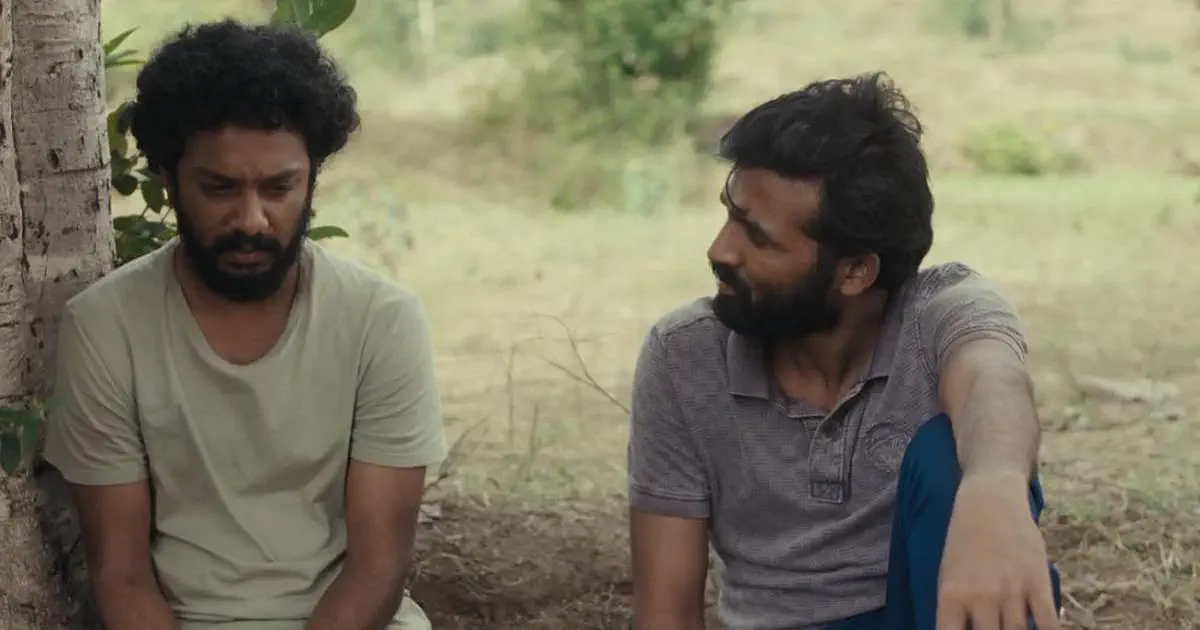
Portrays a bold conflict in a quiet and gentle manner

(Written for The Common Man Speaks)
Homosexuality is not a novel subject, especially in the unconventional or festival kind of cinema. But writer and director Rohan Kanawade’s Sabar Bonda stands apart from a lot of such films due to various reasons. It is quite tough for parents to accept their son as a gay in a country like India. The film shows that even if somehow the parents accept their child’s sexuality, what about the relatives and society at large? And this becomes even tougher in a remote village where even a mere mention of the subject is considered more than taboo. This core aspect of the film is skillfully and sensibly portrayed by Kanawade in his feature film debut itself as a writer and director.
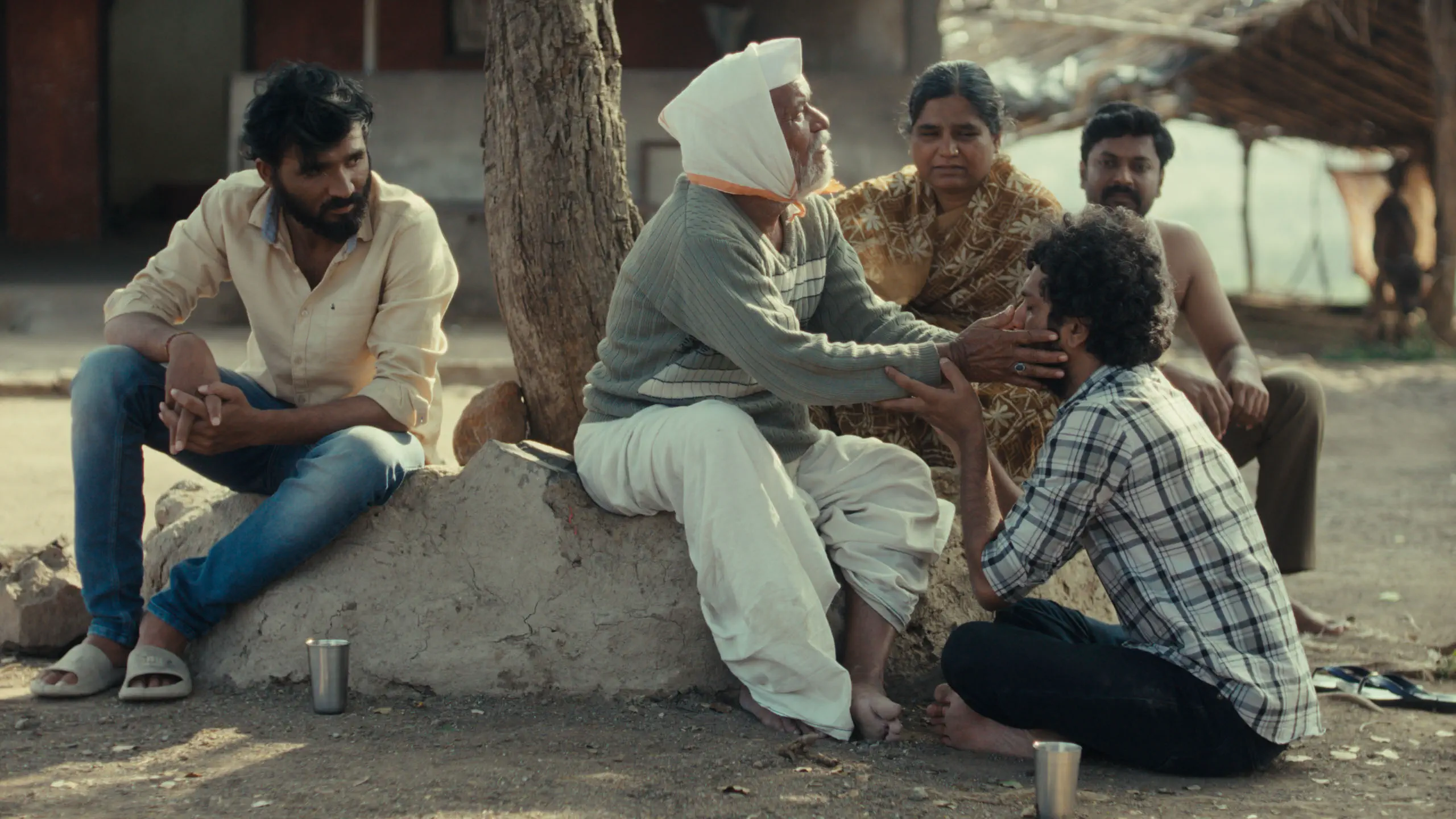
A loving tribute to gay life in India

“It’s a culture that you see in the cities. You know, it’s something the rich people are into. It’s a disease.” You’ve probably heard these lines from people dismissing queer life as a mere lifestyle choice for the wealthy. Director Rohan Parashuram Kanawade’s Marathi-language film Sabar Bonda laughs at these judgments. At one point, in the wee hours, we see a strange man hop over to Balya’s house on a bike. His parents wonder why the guy never shows up during the day. He promises they’ll wrap it up quickly, and when Balya denies, he speeds away like it never mattered. It’s easy to see why this is a very real experience for many queer people in rural India.
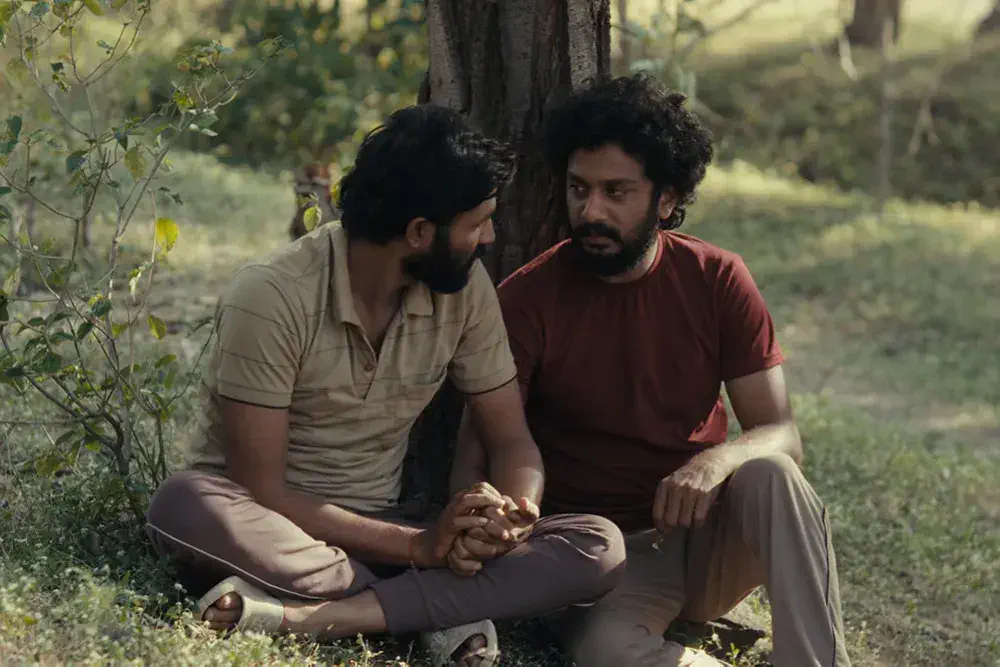
Call Me By Your Shame

Midway through Rohan Kanawade’s Sabar Bonda (Cactus Pears), the 30-year-old protagonist, Anand, listens to the story of how his parents met. His father, who worked as a driver in Mumbai, was visiting his ancestral village in the 1990s. He came to meet an eligible young woman, but ended up ‘choosing’ her uneducated sister because she cooked well; he arrived as a lonely bachelor and left as a companion. Years later, a heartbroken Anand is back home for grave reasons: his father is no more, and the family is fulfilling the tradition of a 10-day mourning period. Yet there’s a sense of history repeating itself. A young man is visiting with his mother to grieve the passing of his father, but it feels like a family visit to cure the loneliness of a bachelor. The formality of death is indistinguishable from the desires of life. Once the Mumbai-bound Anand rekindles his bond with a childhood friend — also illiterate, also someone who loves to feed — the ritualistic nature of loss conceals a quiet quest for companionship. After all, when a funeral pyre burns, sparks always fly.
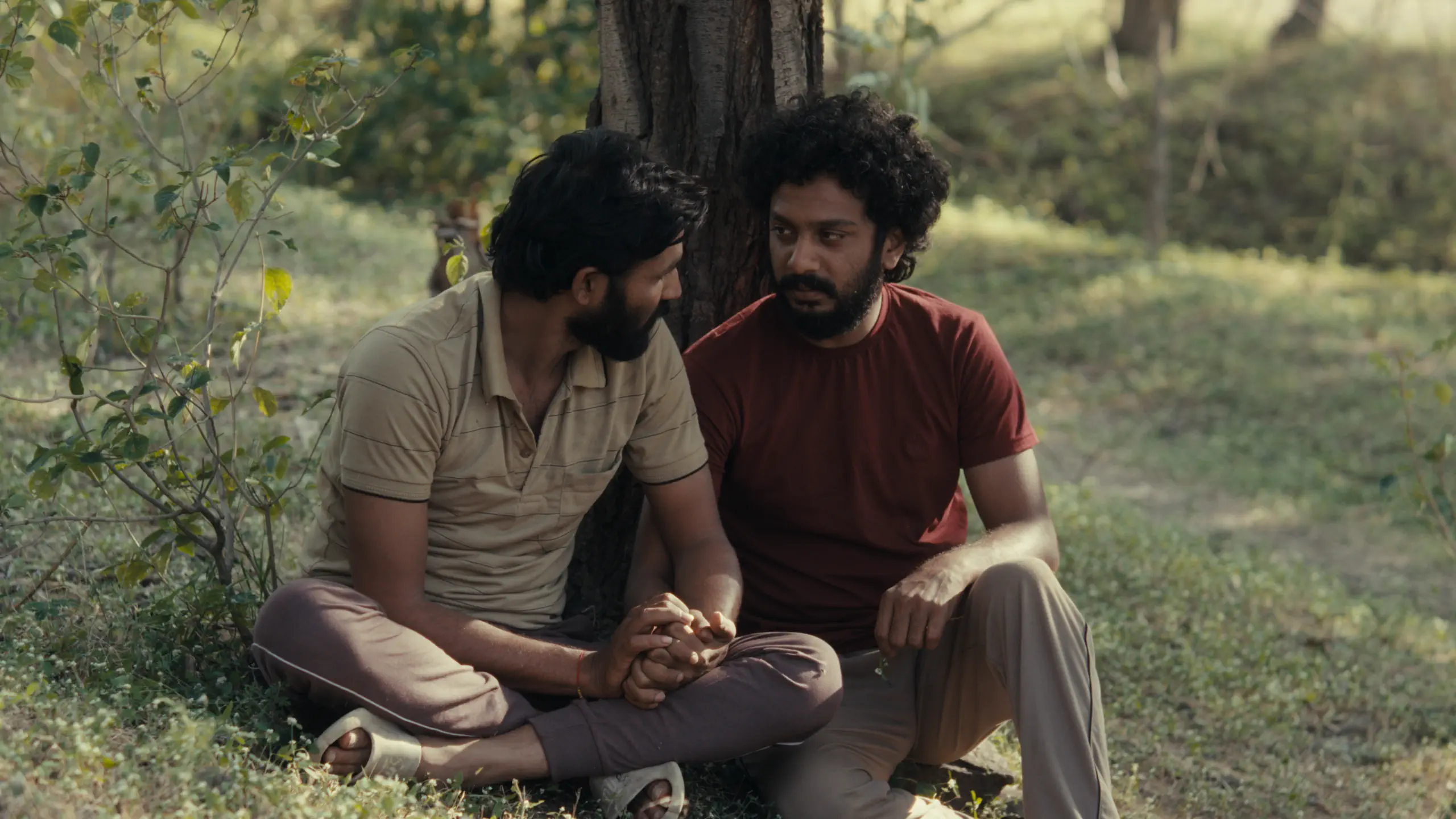
Speak softly and defy expectations

It speaks to the relaxed control of Sabar Bonda how animals freely roam the frame and steal our attention. An optimistic goat breaks away from the herd and approaches two humans eating their lunch; it’s shooed away unceremoniously. A cat draws our gaze as it walks across the screen before it’s spooked by yelling and runs off. As Anand (Bhushaan Manoj) talks to his friend Balya (Suraaj Suman), he glances at a nearby buffalo that’s lifted its tail and done its business. Rohan Parashuram Kanawade’s Marathi film, which won the World Cinema Grand Jury Prize at the Sundance Film Festival this month, is set in a village in Maharashtra. It’s close enough to Mumbai that Anand can take a bus there to perform his father’s last rites in his ancestral village. But it’s also a world removed, a place, in the local imagination at least, of opportunity and permissiveness, herbal shampoos and special friends.
Latest Reviews

